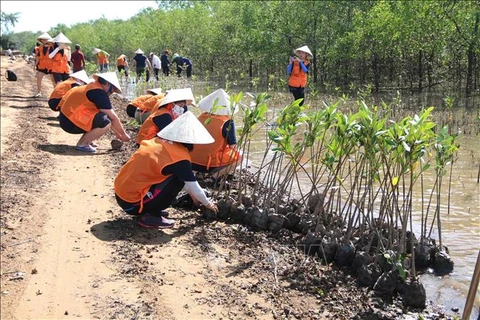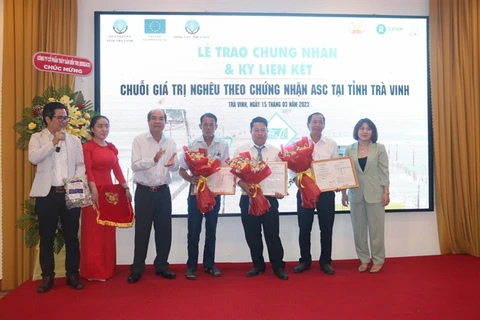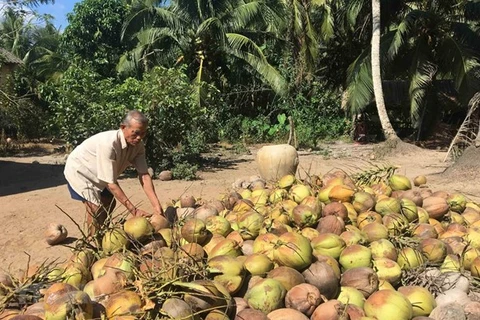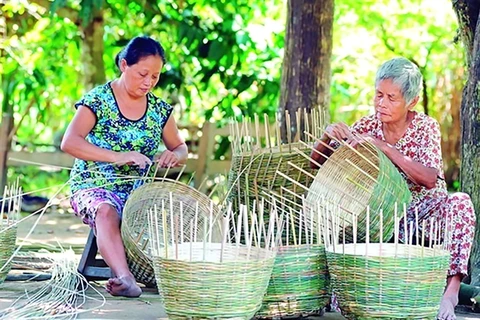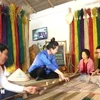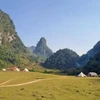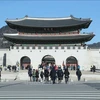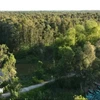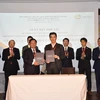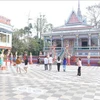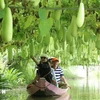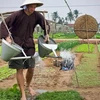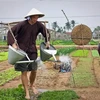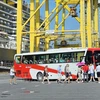 A rambutan orchard offers tourism services in Tan Qui riverine island in Tra Vinh province’s Cau Ke district. (Photo: VNA)
A rambutan orchard offers tourism services in Tan Qui riverine island in Tra Vinh province’s Cau Ke district. (Photo: VNA) Duong Hoang Sum, Director of the province's Department of Culture, Sports and Tourism, said the province plans to develop tourism in combination with promoting its advantages of agriculture, craft villages, culture and biological environment, and this will help develop the rural economy sustainably.
It will develop and standardise tourism destinations and rural tourism products, he said.
It aims for half of its agricultural and rural tourism service establishments to meet the standards of serving tourists by 2025.
It is assisting households and companies to build the digital data and maps of rural tourism destinations, and providing professional skills to serve tourists for people working in agricultural and rural tourism services.
It will mobilise various sources to develop rural tourism, use technology and digital transformation, and strengthen the co-operation among related sectors to develop tourism.
The province has developed green and sustainable tourism products and tourism destinations related to history, ancient architect, culture, spiritual festivals, rivers and orchards.
It has three community-based tourism destinations – Chim riverine island in Chau Thanh district, Ho riverine island in Cang Long district and My Long fishing and marine village in Cau Ngang district.
Chim riverine island is located on Co Chien river in Hoa Minh commune and is about 10km away from Tra Vinh city’s centre.
The island began to offer community-based tourism services in 2019 and has become a well-known tourism destination.
Nguyen Thi Bich Van, head of the island community-based tourism services group, said after offering tourism services, the island has a new look as roads have flowers and trees planted next to them and houses are decorated beautifully.
Visiting the island, tourists will be served traditional dishes such as ‘banh xeo’ (crispy Vietnamese pancake made from rice flour outside, shrimp meat, bean sprouts and other ingredients inside), steamed shrimp, grilled fish and the delta’s other traditional foods, she said.
“All ingredients used for making these dishes are fresh, and cultivated or caught in nature by local farmers so tourists like the dishes,” she said.
The island has a total area of 62ha and 55 households whose main occupations are growing rice and breeding shrimp.
Of the 55 households, more than 20 participate in offering tourism services and their lives have been improved significantly.
Each tourism household makes one traditional dish or offers traditional games, and they co-operate together to serve many dishes for tourists at a same time.
Visiting the island, tourists can play traditional games, ride bicycles, walk in fruit orchards, row boats, cook local foods, and catch fish, shrimp and crab.
To develop community-based tourism, the province gives 50 million VND (2,100 USD) for each household that offers tourism services to invest in tourism service facilities.
The province has instructed these houses to build bamboo and thatched roof houses to serve tourists and strictly manage tourism services activities to secure their quality.
Tra Vinh has advantages for developing agricultural and rural tourism as it has a coastline of 65km, and is located 130km away from Ho Chi Minh City between the Tien and Hau rivers, two tributaries of the Mekong River.
It has diversified natural tourism resources, with a dense river and canal network, many riverine islands with fruit orchards and friendly local people.
It has many popular tourism destinations such as Ba Om pond and Ang pagoda complex in the city of Tra Vinh, which were recognised as national cultural and historic heritages in 1994./.
VNA

